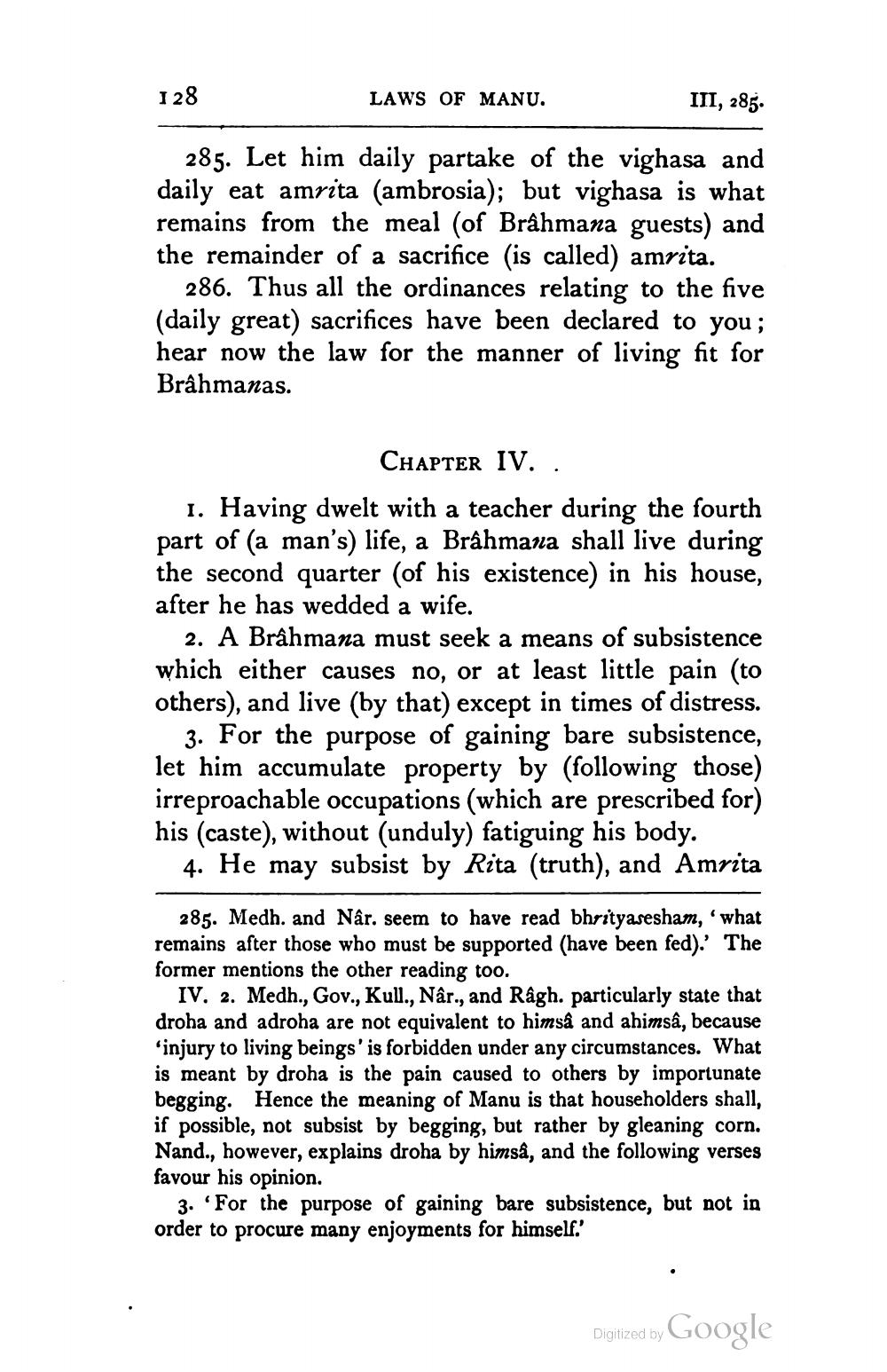________________
128
LAWS OF MANU.
III, 285.
285. Let him daily partake of the vighasa and daily eat amrita (ambrosia); but vighasa is what remains from the meal (of Brahmana guests) and the remainder of a sacrifice (is called) amrita.
286. Thus all the ordinances relating to the five (daily great) sacrifices have been declared to you; hear now the law for the manner of living fit for Brâhmanas.
CHAPTER IV.. 1. Having dwelt with a teacher during the fourth part of (a man's) life, a Brâhmana shall live during the second quarter (of his existence) in his house, after he has wedded a wife.
2. A Brâhmana must seek a means of subsistence which either causes no, or at least little pain (to others), and live (by that) except in times of distress.
3. For the purpose of gaining bare subsistence, let him accumulate property by (following those) irreproachable occupations (which are prescribed for) his (caste), without (unduly) fatiguing his body.
4. He may subsist by Rita (truth), and Amrita
285. Medh. and Nár. seem to have read bhrityasesham, 'what remains after those who must be supported (have been fed).' The former mentions the other reading too.
IV. 2. Medh., Gov., Kull., Nâr., and Râgh. particularly state that droha and adroha are not equivalent to himså and ahimsa, because 'injury to living beings' is forbidden under any circumstances. What is meant by droha is the pain caused to others by importunate begging. Hence the meaning of Manu is that householders shall, if possible, not subsist by begging, but rather by gleaning corn. Nand., however, explains droha by himså, and the following verses favour his opinion.
3. 'For the purpose of gaining bare subsistence, but not in order to procure many enjoyments for himself.'
Digitized by Google




